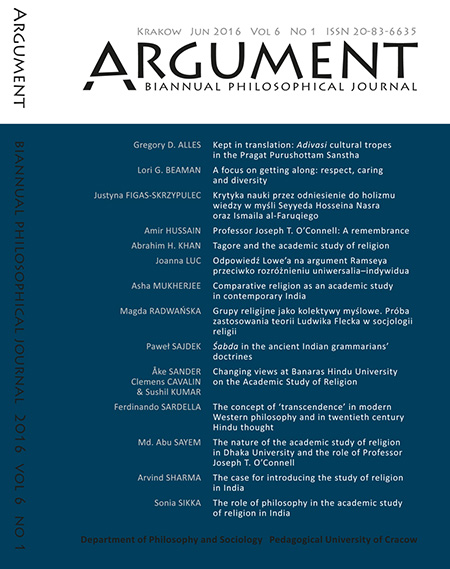Tagore and the academic study of religion
Słowa kluczowe:
Rabindranath Tagore, Visva‐Bharati, comparative study of religions, social imaginary, human person, truth, dharmic traditions, rational inquiry, modern research universityAbstrakt
Rabindranath Tagore (1861-1941), at about the start of the nineteenth century, was advocat‐ ing that the study about religion has to be included in university‐level education in the East. The university he envisioned and founded (Visva‐Bharati) included in its curriculum such a study. Shortly a er India’s regaining independence in 1947 and becoming a secular state, that institution was inaugurated as a central university with an advanced institute for philosophy and the study of religion. This essay answers whether his understanding of studying religion would accommodate the approach to the academic study of religion associated with the mod‐ ern Western research university. It also inquires the extent that the curriculum for the study of religion at Visva‐Bharati evidences such an approach. The answers it advances draw primarily on his two essays, Eastern University and Hindu University, which o er his vision of univer‐ sity level education; on commissioned reports for higher level education in the new India as a secular state; on developments in the academic study of religion in the West, especially the United States; on the relatively recent revised curriculum for such a study at Visva‐Bharati University; and on ideas of social imaginary and the comparative study of religion articulated by Western scholars.


